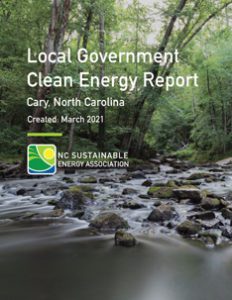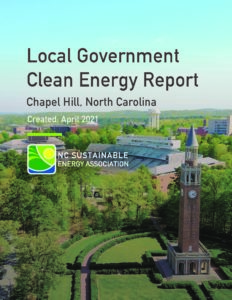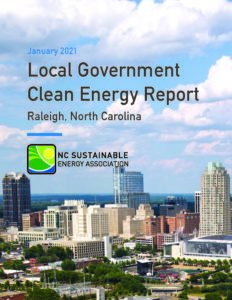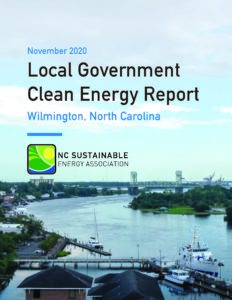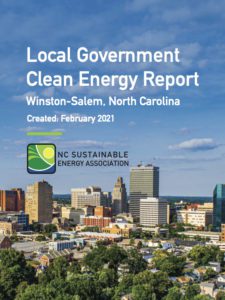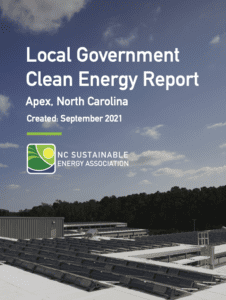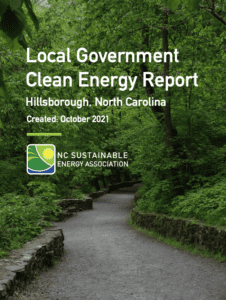We work with our local government members by providing them:
Clean Energy Reports
Policy Tools and Insights
Educational Tools
Grant Collaboration Support
Clean Energy Reports
- NCSEA produces clean energy reports tailored to individual local governments to assist them with tracking clean energy capacity in their territories and benchmarking efforts to cities of similar size.
- These reports are informed by our Renewable Energy Database (REDB), which holds information on clean energy systems throughout North Carolina. This information includes system technology type, size, location and more.

"NCSEA's local government clean energy report provided us with new insights on clean energy capacity in our territory and how we compare with other NC cities. This will be a valuable tool as we track metrics for our major sustainability initiatives such as the Community Climate Action Plan."
–Megan Anderson
Sustainability Manager, City of Raleigh
Policy Tools and Insights
NCSEA engages with local governments to identify any clean energy issues in their territories and then provide them the policy consulting and other support necessary to remove barriers to clean energy growth. Our resources include:
- Solar ordinance templates
- Presentations to local governments and the community to address clean energy misinformation
- Consulting on how to leverage state clean energy policies to assist local government efforts
- Assist with design and implementation of clean energy plans
- Sector group meetings that serve as a platform for members to learn the latest on NCSEA’s work on the state and local policy front
- Insights through policy update meetings that serve as a platform for members to discuss industry issues
- NCSEA intervenes at the NC Utilities Commission to advocate for affordable and accessible clean energy (i.e. utility integrated resource plans (IRPs), rate cases, etc.)
Sustainable Energy Support Hub
NCSEA’s Sustainable Energy Support Hub provides access to interactive data showcasing the deployment of clean technologies across the state of North Carolina. This data provides the opportunity for municipalities to benchmark and compare their progress to other municipal entities across the state. The information contained in this platform has been collected over the course of more than ten years and is sourced from filings made at the North Carolina Utilities Commission. All data is intended to be used for informational and educational purposes only. For additional information or inquiries about further data services, please reach out to info@energync.org.
Educational Tools
In North Carolina, a county's property tax revenue increases an average of $18,862 after a utility-scale solar PV system is installed. Learn more about our 2020 update of the Increased North Carolina County Tax Revenue from Solar Development report.
The Consumer Guide to Solar Electricity for the North Carolina Homeowner is our online guide to educate homeowners and home buyers about the many factors to consider before, during, and after installing solar panels on their homes.
Economic Impact Analysis of Clean Energy Development in North Carolina—2019 Update
Solar resources for homeowners associations (HOAs) to help them adopt provisions that support rooftop solar on homes.
Grant Collaboration Support
NCSEA collaborates with local governments on grant projects and can assist with the grant proposal process on the following items:
- Grant writing assistance
- Identify potential grant partners using NCSEA’s membership network
- Partnering on proposals that support a local government’s clean energy plan
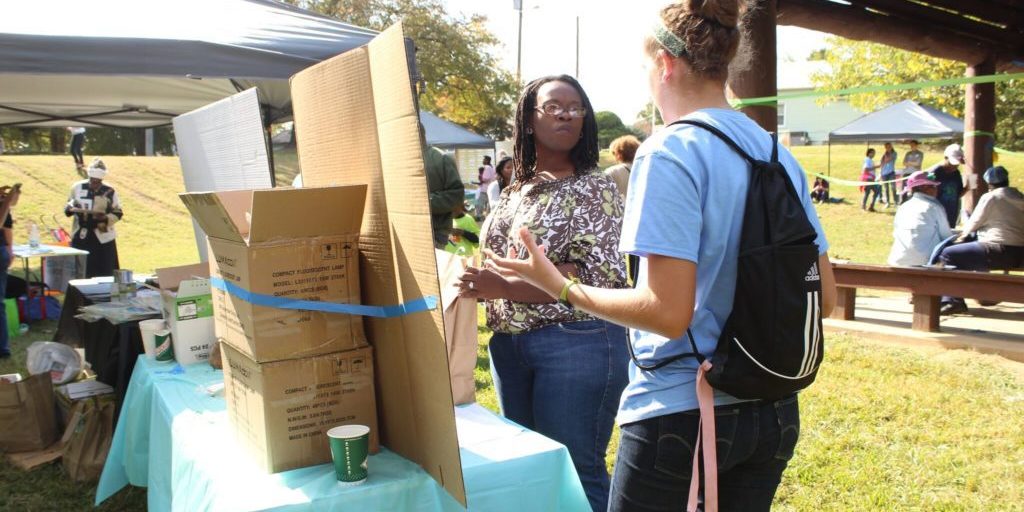
Previous work with government agencies include:
North Carolina Weatherization Assistance Program
NCSEA is currently working with the NC Weatherization Assistance Program (NCWAP) to evaluate the services it provides to low-income residents and provide recommendations for program best practices.
Powering Energy Efficiency and
Impacts Framework (PEEIF) Project
In 2018, NCSEA played a pivotal role in this pilot project funded by the U.S. Department of Energy. The project focused on developing a geospatial database to be used by government entities and utilities to enhance the efficiency of energy services delivered to low-income households in a five-county region of northeastern North Carolina.
Interested in working with us?
Please reach out to Daniel Pate, Director of Data and Research, with any questions.


